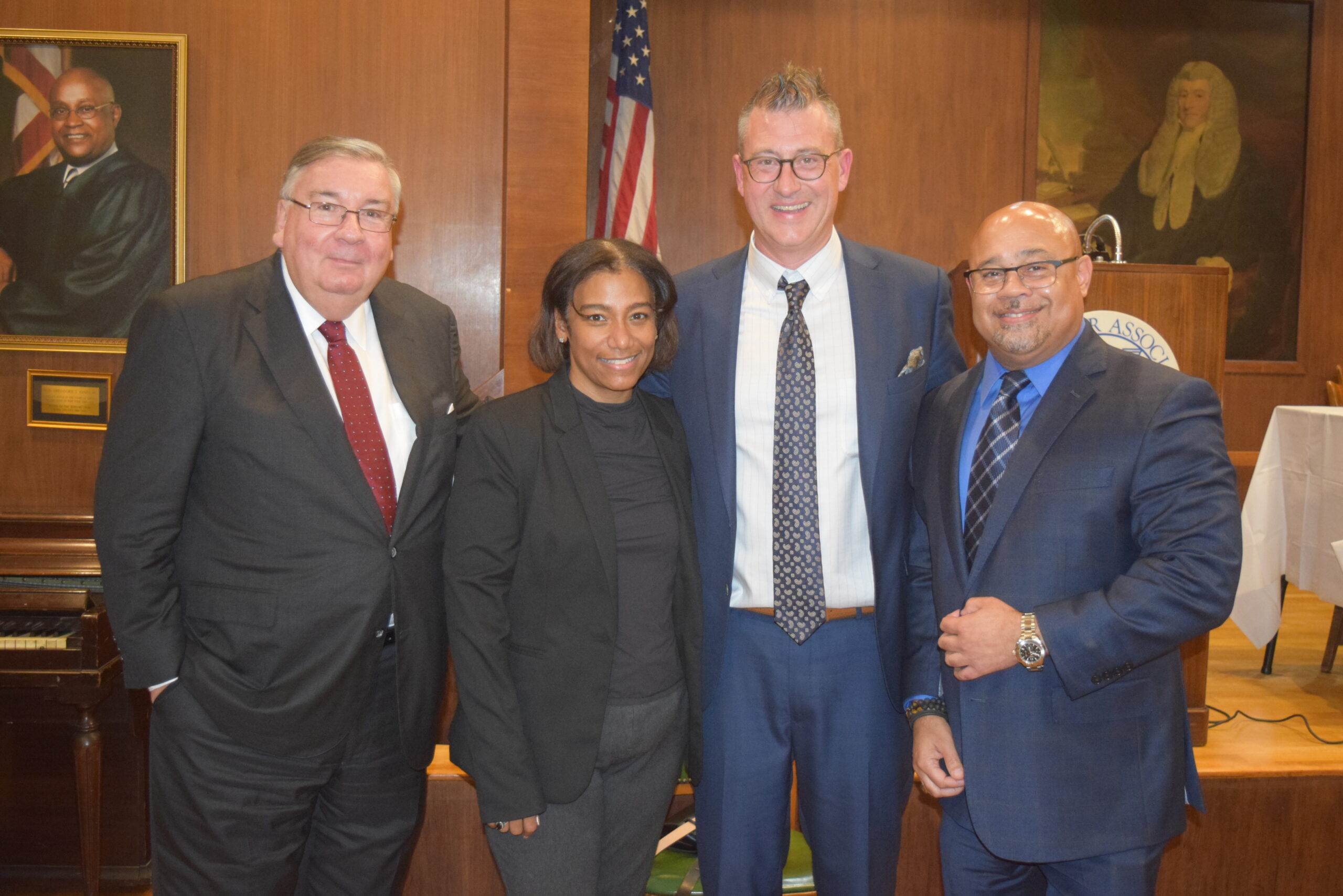
Kings County Criminal Bar Association reviews State of Criminal Courts

The Kings County Criminal Bar Association invited Brooklyn’s top criminal court judges in for their annual “State of the Criminal Courts” update. Pictured from left to right: Hon. Matthew D’Emic, Hon. Keshia Espinal, KCCBA President Darran Winslow and Hon. Craig Walker.
Photos: Robert Abruzzese/Brooklyn Eagle
Photos: Robert Abruzzese/Brooklyn Eagle
Leave a Comment
Leave a Comment



